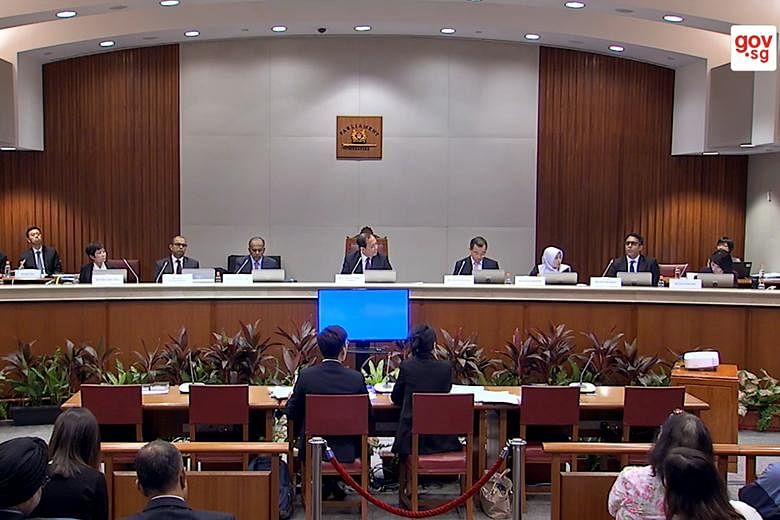A high-level parliamentary committee, looking at ways Singapore can thwart deliberate online falsehoods, starts its public hearings today .
Over three days this week, the Select Committee will engage with an initial group of more than 20 representatives, including academics at local and foreign universities, as well as spokesmen from religious organisations in Singapore. They include Institute of Policy Studies senior research fellow Carol Soon, Dr Shashi Jayakumar of the S. Rajaratnam School of International Studies (RSIS), and European Values Think-Tank director Jakub Janda, who will take part via video conference.
The rest to appear before the 10-member committee will do so over the next two weeks.
In all, 79 individuals and organisations will go before the committee, the highest number to appear before a Select Committee.
The current committee, chaired by Deputy Speaker Charles Chong, is notable for two other record-breaking reasons.It has the highest number of full-day hearings, lasting eight days in all, and has received the most written representations, at 164.
The hearings will encompass several themes to elucidate the issue.
These include: The phenomenon of deliberate online falsehoods as a serious global problem, the way technology has worsened the problem and what technology firms are doing to tackle it.
-
What to do if you want to attend hearings
DATES OF HEARINGS
Today to Friday; March 22 and 23; and March 27 to 29.
TIME OF HEARINGS
The hearing today will start at 11am. On the other days, it will start at 10am.
VENUE
Hearings will be held at the Public Hearing Room in Parliament House. The entrance is along Parliament Place.
DRESS CODE
Visitors who are inappropriately dressed may be refused entry. This includes people wearing singlets, shorts, slippers or sandals, or wearing clothing with inappropriate words, slogans or symbols, like those bearing political party affiliations.
DOCUMENTS TO TAKE
Visitors need to have their identity card or passport to exchange for a pass.
PHONES AND CAMERAS NOT ALLOWED
Members of the public must deposit their bags and belongings, including electronic devices like mobile phones, into lockers. The lockers cost 40 cents or 60 cents, depending on size, and are for one-time use.
They will also explore how falsehoods affect different parties here, the various ways Singapore can respond and the merits of different options, like legislation.
But what are falsehoods?
These range from fake news for commercial purposes to state-sponsored disinformation campaigns with political aims.
In the current environment, falsehoods have been spread online to attack public institutions and individuals, leading some countries to consider responding with legislation.
France, for example, is expected to introduce draft legislation that will, among other provisions, require websites to disclose the identities of those who sponsor content on their platforms.
Singapore has been studying written representations received from a range of stakeholders such as media organisations, technology companies, local and foreign experts, telcos and members of the public.
Among those who wrote in are Associate Professor Alan Chong of RSIS and Mr Howard Lee, a former editor of socio-political website The Online Citizen, who is doing a PhD at Murdoch University.
Prof Chong, noting the difficulty of targeting, isolating and containing the spread of online falsehoods, hopes his submission addresses some "grey areas" in fake news.
He told The Straits Times that certain forms of journalism, like those that set out hypothetical scenarios, risk being censured if fake news is targeted indiscriminately.
Mr Lee's submission said an open exchange of information remains the best solution against misinformation, not legislation.
Separately, Home Affairs and Law Minister K. Shanmugam, who is on the Select Committee, told reporters at an event yesterday that he hoped the hearings would give people a better understanding of the issues Singapore and the world face with online falsehoods.


